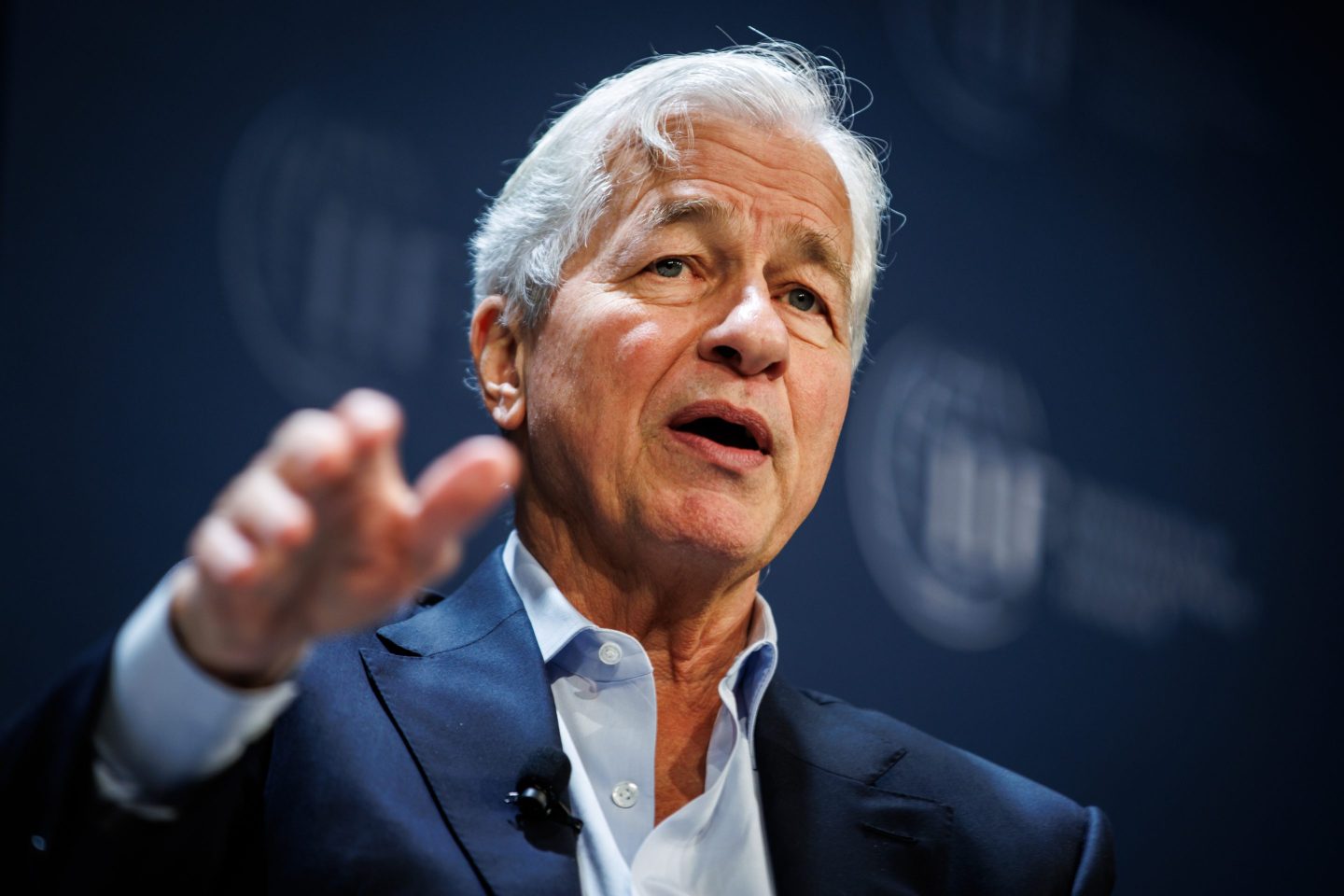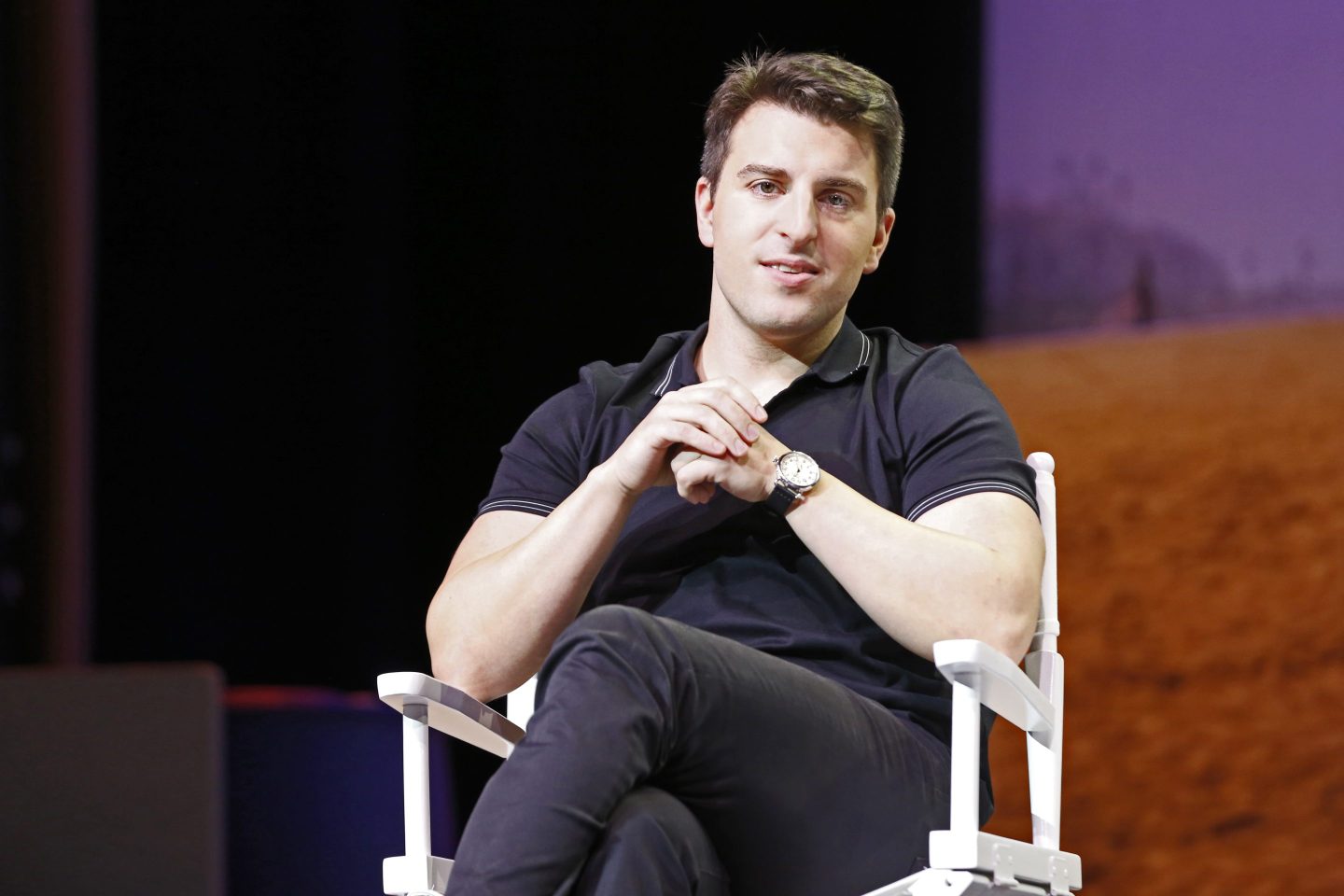Everyone—from the White House to other Fortune 500 CEOs—wants to get hold of Jamie Dimon. But the JPMorgan Chase CEO is clear: If he’s in meetings or out for appointments he won’t be checking his phone for emails or texts.
There are a handful of exceptions to that rule, in the form of Dimon’s immediate family, who are the only people for whom he will have notifications turned on.
Speaking to CNN in an interview released last night, the billionaire banker confirmed that during his workday, he rarely carries his mobile phone with him.
“I don’t have it in front of me all the time. If you send me a text during the day, I probably do not read it,” he said. “I don’t have notifications; the only notifications I get [are] from my kids, that’s it. When they text me I get that.”
Dimon has three daughters, Julia, Laura, and Kara.
“People don’t call me on the phone that much, they tend to call my office … When I’m walking around and going to meetings I don’t have it on me, it’s in my office. If you need me and it’s important, call my office, and they’ll come get me,” Dimon continued.
Dimon’s phone philosophy is part of his wider argument around distractions in the workplace. Speaking at the Fortune Most Powerful Women Summit last month, Dimon noted that he pre-reads for his meetings, to avoid playing catch-up.
“None of this nodding off, none of this reading my mail,” Dimon told Fortune editor-in-chief Alyson Shontell. “If you have an iPad in front of me, and it looks like you’re reading your email or getting notifications, I tell you to close the damn thing. It’s disrespectful.”
If at any point that laser focus wavers, he added, he’ll know it’s time to “move on.”
Indeed, the CEO who has led America’s largest bank for two decades hammered home his point in his letter to shareholders this year. “I see people in meetings all the time who are getting notifications and personal texts or who are reading emails,” Dimon wrote. “This has to stop. It’s disrespectful. It wastes time.”
There’s also a cost incurred. Last summer, a study from Screen Education found that the average American employee spends 2.5 hours each workday accessing digital content that is unrelated to their job. Moreover, 14% of more than 1,000 respondents said at least one accident had occurred at their workplace because an employee was distracted by a smartphone—often resulting in injury or damage to property.
“When I go to my meetings I’m 100% focused,” Dimon added to CNN. “[On] what you’re talking about, why you’re talking about it, as opposed to, ‘I’m distracted and thinking about other things.’”
IBM CEO Arvind Krishna, by contrast, doesn’t mind so much if people check their messages in a meeting. “I distinguish between one-to-10-person meetings and very large meetings. If it’s a very large meeting, I’m sorry, it’s not really a meeting. It’s a communication vehicle. You’re just informing people,” Krishna told CNN last week.
No to politics
For years, fans of Dimon’s way of working and approach to policy have also called for him to enter the world of politics. His name has been touted as a presidential candidate but also for a cabinet role like Treasury secretary.
Previously, Dimon has been flattered by the questions but has not responded firmly one way or the other. Since announcing his intention to hand over the top job at JPMorgan in the next five years, those questions have only piled up as speculators wonder what the famed financial veteran will do next.
This week Dimon put those notions to bed, saying to either a presidential run or cabinet position: “Neither. This is my perch. I can do it and do it well, and help make the world a better place.”













